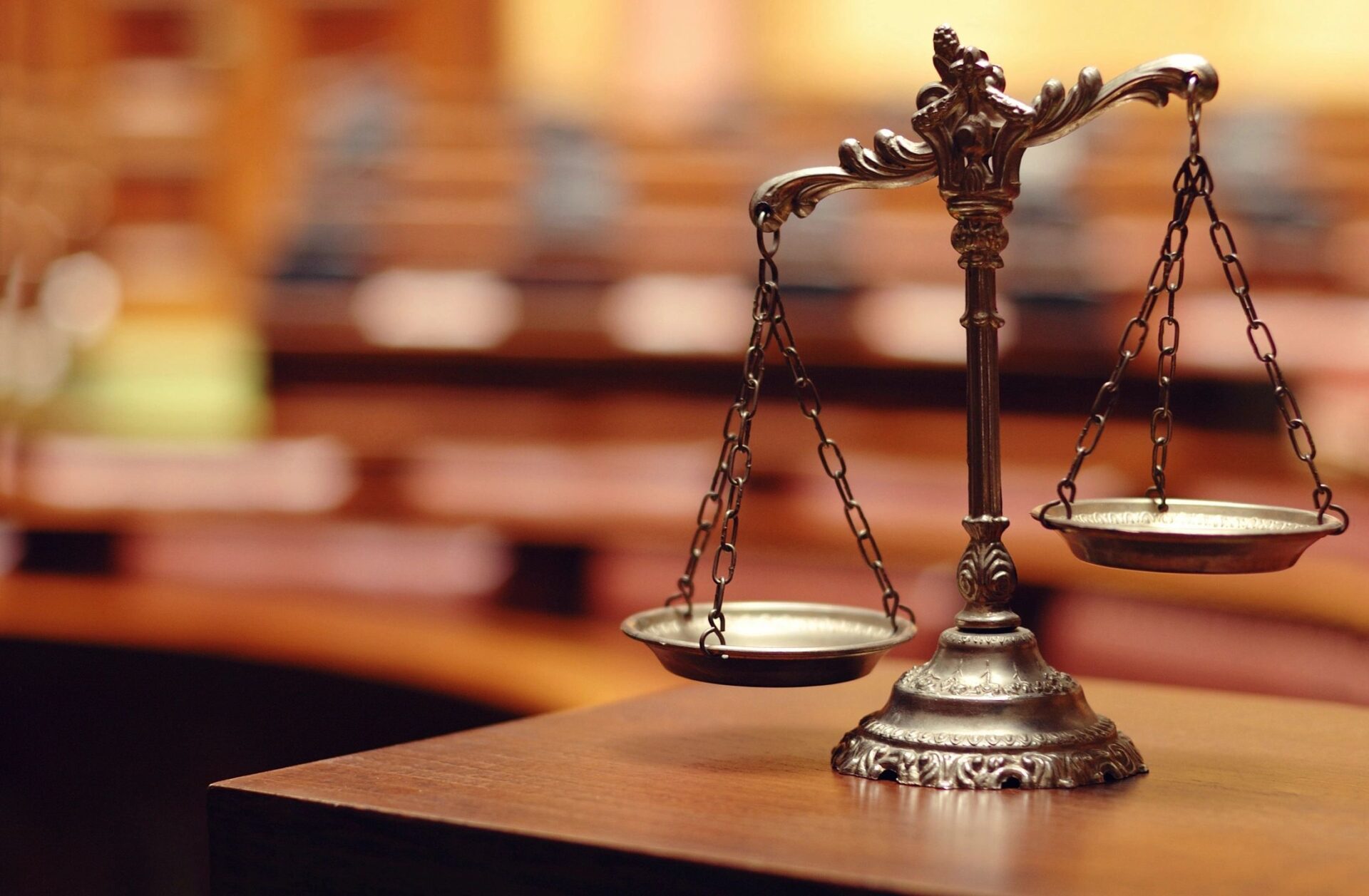Are you a financial advisor with an unfair U-4 blemish? Is that blemish hindering your chances to find another job in the securities industry? If so, the securities attorneys of The White Law Group may be able to help you have the blemish expunged. You may also have a claim for defamation against your former employer.
The White Law Group represents financial advisors in various disputes with their former employer, including representing advisors in claims related to wrongful termination, retaliation, discrimination, and outstanding promissory notes.
To speak with a securities attorney, please call the firm’s Chicago office at 888-637-5510.
If you have an unfair U-4 blemish, the following information (which is publicly available on the FINRA website) gives you the basic breakdown of the expungement process, as codified by FINRA Rule 2080 (formerly NASD Rule 2130):
1. What type of information can be expunged under Rule 2080?
Rule 2080 pertains to customer dispute information. This is typically information involving disputes between customers and member firms or their associated persons that has been reported on Forms U4 or U5 in response to the Customer Complaint/Arbitration/Civil Litigation Disclosure question(s) and associated disclosure reporting page(s). The requirements of Rule 2080 do not apply to information concerning intra-industry disputes between firms and associated persons with no customer party that typically has been reported on Form U5 in response to the Reason for Termination question or the Internal Review or Termination Disclosure questions and associated disclosure reporting page(s). Under existing CRD policy, and consistent with the 1999 moratorium, FINRA may execute, without a court order, arbitration awards rendered in disputes between firms and associated persons that contain directives to expunge information other than customer dispute information, provided that the arbitration panel states that expungement relief is being granted because of the defamatory nature of the information. See Notices to Members 99-09 and 99-54. These expungements are not covered by Rule 2080.
2. Under the moratorium in effect from January 19, 1999 through April 11, 2004 (Notice to Members 99-09), respondents were required to obtain court confirmation of an arbitration award containing expungement relief. Is it still necessary under Rule 2080 to obtain court confirmation of an expungement award?
Yes. Rule 2080 continues the requirement started with the January 1999 moratorium that a court of competent jurisdiction must order, or confirm arbitration awards directing, expungement before FINRA will expunge customer dispute information from the CRD system. This includes arbitration awards issued after a decision on the merits and arbitration awards in which the parties have agreed to expunge customer dispute information as part of the settlement and then presented the settlement to the arbitration panel for inclusion in a stipulated award.
3. How do the requirements of Rule 2080 differ from the procedures used to request expungement under the moratorium?
Under Rule 2080, members and associated persons still must obtain a court order directing expungement or confirming an arbitration award containing an expungement directive. In addition, Rule 2080 requires that FINRA be named as a party to the court proceedings, and be served with all appropriate documents, unless FINRA waives that requirement. To obtain FINRA’s waiver, the party seeking expungement must follow the steps outlined below in response to Question No. 7.
4. What steps should a respondent in an arbitration proceeding take to seek expungement under Rule 2080?
In brief, a party seeking expungement in an arbitration proceeding should request expungement, preferably in his or her answer, counterclaim or statement of claim. The arbitrators will decide whether to grant a request for expungement on the basis of one or more of the three standards specified in Rule 2080. In addition, FINRA’s Code of Arbitration Procedure for Customer Disputes and Code of Arbitration Procedure for Industry Disputes (collectively, the “Arbitration Code”) contains special procedural requirements relating to requests to expunge customer dispute information, including that arbitrators hold a recorded in-person or telephonic hearing, review settlement documents and consider the amount of payments made to any party and any other terms and conditions of settlement. If the arbitrators grant expungement relief, the Arbitration Code also requires that they briefly explain in the award the factual basis(es) for finding that expungement is appropriate under one or more of the Rule 2080 standards. For more information regarding these requirements, see Arbitration Code Rules 12805 and 13805 and Regulatory Notice 08-79.
5. What affirmative finding(s) must arbitrators make for FINRA to waive participation in the court confirmation process?
The arbitrator must, after complying with Arbitration Code Rule 12805 or 13805, make an affirmative finding that the subject matter of the claim or the information in the CRD system meets one or more of the three standards, set forth in Rule 2080. Without such an affirmative finding, FINRA would have no basis under Rule 2080 to waive the requirement that it be named as a party in the court confirmation process.
(1) The claim, allegation, or information is factually impossible or clearly erroneous.This standard, for example, would provide a basis for expungement for an individual who was named in an arbitration claim but was not employed or associated with the member firm during the relevant time.
(2) The registered person was not involved in the alleged investment-related sales practice violation, forgery, theft, misappropriation, or conversion of funds. This is an objective standard based on CRD reporting requirements. This standard would require an affirmative arbitral finding that the registered person was not involved in the alleged investment-related sales practice violation, forgery, theft, misappropriation, or conversion of funds. Under this standard, dismissal of a claim, by itself, would not be a sufficient basis for ordering expungement.
(3) The claim, allegation, or information is false. Under this standard, the adjudicator will assess the evidence in the case, make an affirmative finding that the claim, allegation, or information is false, and order expungement relief. (The terms “sales practice violation,” “investment-related,” and “involved” as used in these three standards have the same meaning as the definitions of these terms in the Form U4 in effect at the time the expungement order is issued.)
In addition, if the expungement relief is based on judicial or arbitral findings other than those described above, FINRA, in its sole discretion and under extraordinary circumstances, may waive the obligation to name FINRA as a party if it determines that:
(1) The expungement relief and accompanying findings on which it is based are meritorious; and
(2) The expungement would have no material adverse effect on investor protection, the integrity of the CRD system, or regulatory requirements.
6. Do the standards described above apply to court proceedings in addition to arbitrations?
Yes. Although courts are not obligated to adhere to the standards enunciated in Rule 2080, FINRA will use the Rule 2080 standards in determining whether to oppose the expungement request and will recommend that the court use the standards when considering the request for expungement.
7. If the arbitrators award expungement, what is the next step for the member or associated person seeking expungement?
The party seeking expungement should send to FINRA at the address set forth below a written request for a waiver, along with relevant documents such as the statement of claim, the answer, any settlement agreement, the arbitration award, and any other relevant documents.
Rule 2080 – Expungement Notice/Waiver Request
FINRA Registration and Disclosure Department – 3rd Floor
9509 Key West Ave.
Rockville, MD 20850
FINRA staff will review the information to determine whether the award complies with Arbitration Code Rule 12805, or 13805, and whether the expungement relief was awarded based on one or more of the standards in Rule 2080. Provided that the award reflects compliance with the Arbitration Code, and contains an affirmative finding that the expungement meets one or more of the standards in Rule 2080, FINRA staff will generally grant the waiver. See Notice to Members 04-16.
8. What happens after FINRA staff receives a request for a waiver?
Upon receipt of a request for a waiver, FINRA staff will provide to the States where the individual is, or is seeking to be, registered a copy of the waiver request and any accompanying documents. FINRA staff will also conduct the review described above in response to Question 7, and will provide a written response granting or denying the waiver request. If a party whose waiver request is denied still wishes to proceed, he or she must name FINRA as a party, and serve FINRA with notice as set forth in response to Question 11, in any litigation to confirm the award. State authorities will make their own determination on whether to oppose the expungement.
If the party is seeking expungement as part of a court proceeding, FINRA must be named as a party and served as set forth in response to Question 11. Based on the reasons given for requesting expungement, and after reviewing relevant documents and information, FINRA staff will determine whether to oppose. As with waiver requests, FINRA will provide relevant state authorities with notice of the litigation and may also provide copies of the types of documents referenced above. State authorities will make their own determination on whether to oppose the expungement.
9. What is the reason for FINRA, and possibly State, participation in court confirmation proceedings?
FINRA and State participation in the court confirmation proceeding is an additional safeguard to ensure that courts are aware of the standards of Rule 2080 and relevant regulatory and investor protection interests. There is currently no procedure in place to ensure that courts are made aware of the investor protection, public policy, and regulatory considerations implicated by expungement of customer dispute information. Although courts are not obligated to adhere to the standards enunciated in Rule 2080, the Rule gives FINRA and the States the opportunity to participate in the court confirmation process and make courts fully aware of investor protection and regulatory concerns relating to inappropriate expungements.
10. What is the role of arbitrators or other fact finders in the expungement process?
A critical element in this process is FINRA’s reliance on the fact finders (i.e., arbitrators and courts) who have reviewed evidence regarding the underlying dispute to determine whether the expungement relief is appropriate based on at least one of the standards in Rule 2080. Fact finders are expected to carefully evaluate the evidence and award expungement relief only in appropriate cases. If arbitrators have followed the appropriate Arbitration Code procedures, and made one or more of the findings under Rule 2080, FINRA will rely on arbitrators’ findings and will generally waive participation in the court proceedings to confirm arbitration awards. Arbitrators considering expungement relief are required to complete training provided by FINRA Dispute Resolution regarding the Arbitration Code procedures for expungement, the Rule 2080 standards and the requirement to make specific findings if they decide that expungement is appropriate.
11. If FINRA tells the party seeking expungement that FINRA must be named as a party in the court confirmation process, where should FINRA be served with the court papers?
FINRA should be served through its registered agent for service, Corporate Creations, in the State in which the party is seeking expungement.
12. Will FINRA participate in every court proceeding to confirm an expungement directive?
No. As noted in response to Question Nos. 3, 7 and 8 above, member firms and associated persons may ask FINRA to waive the requirement to name FINRA as a party on the basis that the expungement order meets at least one of the standards for expungement articulated in Rule 2080. This will save members and FINRA time and expense by enabling FINRA to review the awards and findings of the arbitrators and to determine whether a waiver is appropriate, as discussed in response to Question No. 7.
Although FINRA expects that arbitrators will consider the overwhelming majority of expungement requests, a judge may also make the affirmative finding required under Rule 2080. However, as noted in response to Question Nos. 3 and 8 above, and Question No. 16, below, member firms or associated persons seeking expungement relief in court (as plaintiff or defendant) will be required to name FINRA as a party. FINRA will determine whether to oppose the expungement request based on the reason(s) for requesting expungement, and supporting evidentiary material.
13. On what basis will FINRA determine to participate in a court confirmation proceeding to oppose an expungement directive?
FINRA will generally participate in the court confirmation proceeding and generally oppose confirmation of the expungement directive if an expungement award was not issued in compliance with Arbitration Code Rule 12805 or 13805, or if arbitrators do not make an affirmative finding as required under Rule 2080. As a further means to ensure that the court is made aware of the investor protection and regulatory implications of an expungement, States may choose to intervene if they have concerns regarding whether investor protection or regulatory issues will be fairly considered.
14. What would happen procedurally if an arbitration panel orders the expungement of customer dispute information from a Form U5 on the basis that it is defamatory?
As noted in response to Question No. 1, consistent with the 1999 moratorium, FINRA may continue to expunge, without a court order, expungement directives contained in arbitration awards rendered in disputes between registered representatives and firms in which the arbitration panel states that expungement relief is being granted because of the defamatory nature of the information. Accordingly, FINRA will expunge this information from the sections of the Form U5 relating to reasons for terminations or internal reviews without requiring court confirmation of the order. If, however, the arbitration panel orders expungement of customer dispute information from any other section of the Form U5 or from the Form U4, the order is subject to the requirements of Arbitration Code Rule 12805 or 13805, and Rule 2080 with respect to the additional expungement relief.
15. How does a respondent request expungement if the parties settle the arbitration?
In the event of settlement, the parties could jointly request a stipulated award from an arbitration panel that would include a request that the panel make affirmative findings and order expungement based on one or more of the standards in Rule 2080. The arbitrators would be required to follow the procedures set forth in Arbitration Code Rule 12805 or 13805 in considering any such request for expungement. The arbitrators would then determine whether expungement should be granted based on one or more of the three standards set forth in Rule 2080. Note:Parties who plan to seek expungement relief notwithstanding a settlement should immediately advise the FINRA arbitration staff member assigned to the case that they plan to do so, so that the case is not closed before the expungement request is considered. As discussed in response to Question No. 17, the Arbitration Code contains strict time deadlines and other conditions for reopening closed cases. See Arbitration Code Rules 12905 and 13905.
16. How would parties obtain a court order if they reach a settlement outside of the arbitration process that includes an expungement directive?
The parties may initiate an arbitration (and pay applicable fees) for the limited purpose of incorporating their settlement and requesting the affirmative findings specified in Rule 2080 in an award. As noted in response to Question No. 5, the arbitrators would need to follow the procedures set forth in Arbitration Code Rule 12805, or 13805, and review sufficient evidence upon which to base their Rule 2080 findings. In such cases, parties would still need to obtain a court order confirming the award directing expungement. Alternatively, if parties choose to commence litigation (in lieu of arbitration) to obtain expungement relief, they must name FINRA as a party.
17. How should parties proceed if they reach a settlement after the arbitrators issue a decision on the merits?
Under FINRA Arbitration Code Rule 12905, or 13905, parties may jointly request that arbitrators reopen cases to make substantive changes to an arbitration award, provided the request is made within 10 days after service of an award or notice of a case closing. Arbitrators have discretion to grant or deny any such request. State laws also may prohibit or restrict a party’s ability to reopen a closed arbitration case. FINRA will not provide legal advice on applicable state law.
18. How did FINRA determine the standards for expungement of customer dispute information?
In crafting the standards set forth in FINRA’s rules regarding expungement, FINRA was guided by the interests of regulators in having accurate and relevant information to fulfill their regulatory responsibilities, the interests of the brokerage community in having a fair process to protect their reputations where appropriate, and the interests of investors in having access to accurate and meaningful information about brokers with whom they now or in the future may engage in business. FINRA recognizes that expungement of a CRD record under any circumstances is an extraordinary remedy and should be used only when the expunged information has no meaningful regulatory or investor protection value. FINRA believes that the criteria enumerated in the expungement rules meet this standard.
Tags: FINRA expungement proceedings, FINRA expungement rule, FINRA Rule 2080, FINRA Rule 2080 expungement, FINRA securities attorney, FINRA securities lawyer, NASD Rule 2080, NASD Rule 2130, retaliation, Securities Attorney, Securities Lawyer, U-4 attorney, U-4 expungement attorney, U-4 expungement lawyer, U-5 attorney, U4 expungement, wrongful termination Last modified: June 23, 2023




